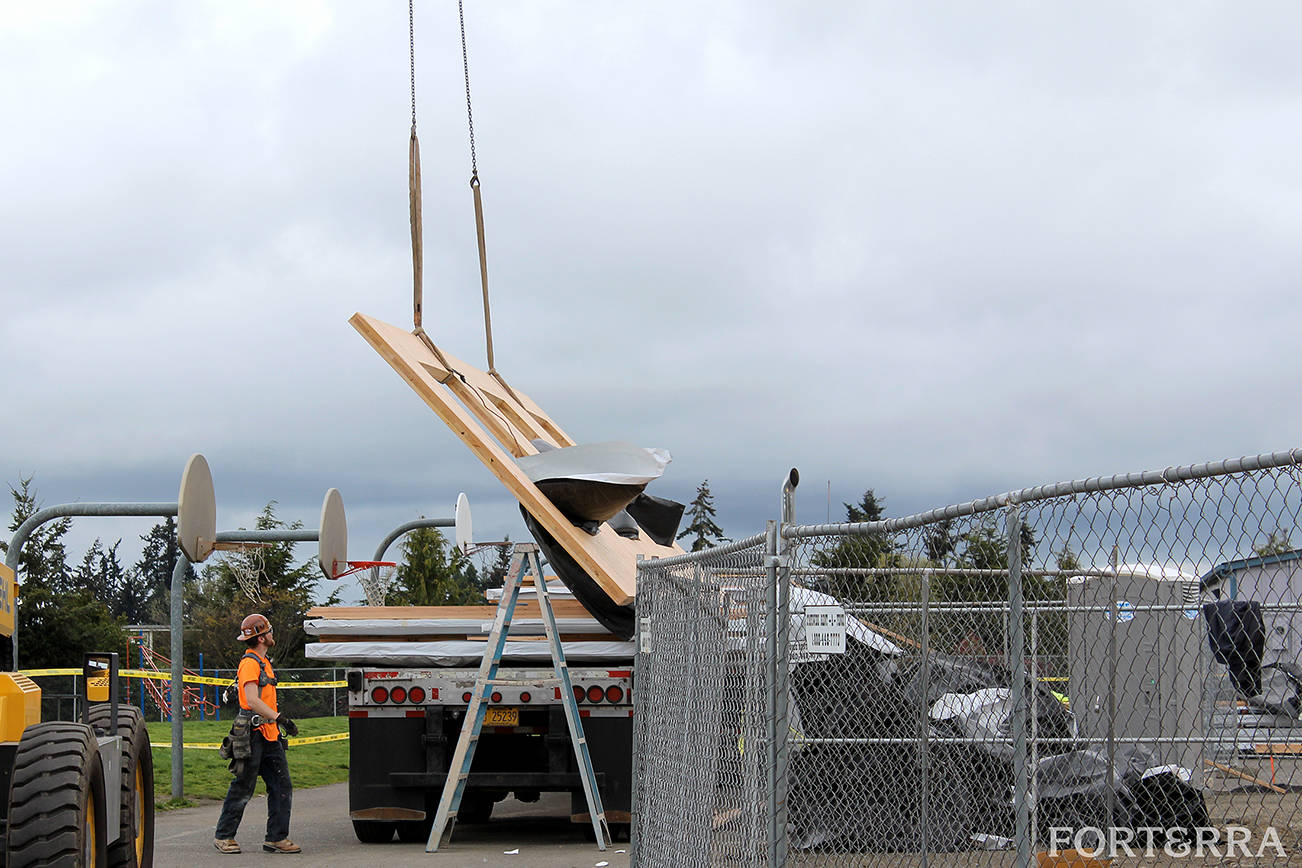Installation began Monday on a new modular classroom building made from cross laminated timber (CLT) at Greywolf Elementary School in Sequim. The panels were created from timber sourced from the Olympic Peninsula and were manufactured in Oregon, making the CLT project one of the first in Washington state to use local wood.
“Today we watch as new classrooms are built for our kids out of an innovative material that can secure a better future for those kids and for our community,” said Congressman Derek Kilmer (D-Gig Harbor). “Folks in our region don’t want our top export to be young people. The Olympic Peninsula is showing the world that it’s a place where new innovation and new opportunities are taking place.”
The classrooms are part of a statewide pilot project overseen by the Department of Enterprise Services to address the need to create more classrooms and pioneer the use of CLT in Washington State. Sequim School District is one of five districts — Mt. Vernon, Seattle, Wapato and Toppenish are the others — having classrooms built from CLT for kindergarteners through third graders. Four new classrooms will be open to Greywolf Elementary students at the start of the 2017-18 school year.
CLT is a prefabricated, solid engineered wood panel. Manufactured by fusing crisscrossing layers of wood, it is remarkably strong and stable and can be made in a range of sizes. All load-bearing walls in the classroom buildings will be constructed from CLT and the material will be left exposed to view from the interior. Natural wood has been shown to generate positive psychological responses, improving mental and physical health of students.
“The kids are excited for the new classrooms, and we know they’ll feel more settled in a permanent space made from wood that’s virtually from their back yard.” said Sequim School District Superintendent Gary Neal.
The CLT panels used at Greywolf Elementary were created from locally-sourced timber from the Olympic Peninsula. From the forests of the peninsula to classrooms in Sequim, these classrooms are an example of growing interest nationally in the “Forest to Frame” model — where sustainably-harvested local timber meets demand for local growth, and can spur local economies.
“This is a win-win-win for the kids, our economy, and the environment,” said State Representative Steve Tharinger (D-Sequim). “These CLT modular classrooms demonstrate how we can meet schools’ growing demand for classrooms by providing better, more permanent structures that are also made from sustainable, local, innovative wood products.”
“Seeing our lumber incorporated in this new and exciting material is a good feeling. New market opportunities mean more job security for our families and our community,” said Paul Bialkowsky, Peninsula Timber Manager for the timber products company Interfor.
“With visionary leadership, we can realize the potential of CLT for our communities and our environment here in Washington. Thankfully, that leadership is coming from an incredible coalition across the state — from urban and rural communities, to our design and construction industry, to officeholders at every level. Pilot projects like at Greywolf are key to creating a marketplace for this promising product,” said Leda Chahim, Government Affairs Director at Forterra, a leader in coordinating the coalition.



